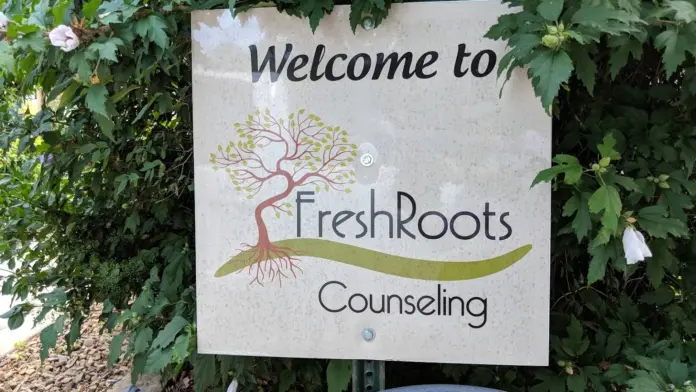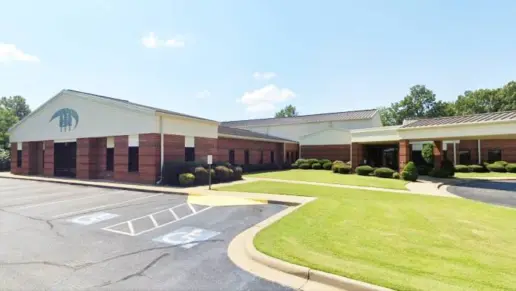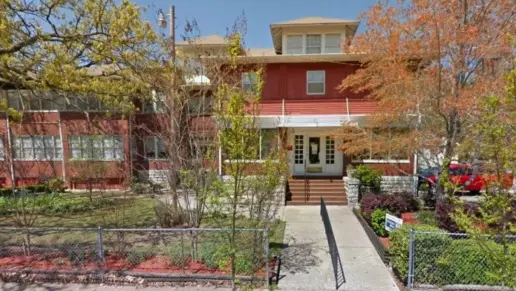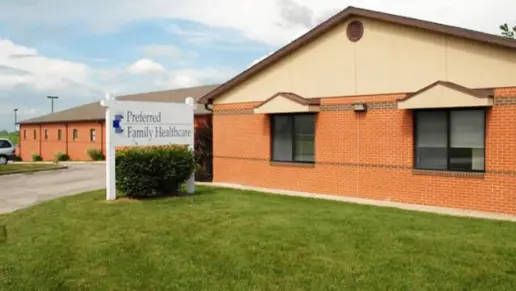About Fresh Roots Family Counseling
Fresh Roots Family Counseling provides comprehensive outpatient counseling services for Rogers, Bentonville and all Northwest Arkansas residents. They primarily offer alcohol/drug addiction counseling, anger management and coping skills/stress management. The facility provides a confidential, conducive and supportive setting where you can receive the support needed to tackle your behavioral challenges. Services are available for adults, preteens/teens and even toddlers and families.
Their counselors comprise licensed and trained professionals in various clinically proven therapeutic models from EMDR to substance misuse rehabilitation therapy. These experts are committed to providing individualized treatment that fosters lasting recovery from your alcohol and drug misuse. Their individual counseling or therapy for addiction recovery may leverage cognitive behavioral therapy and dialectical behavior therapy. These models promote emotional regulation and can help you tackle negative behavioral patterns that fuel your substance misuse.
Their stress/anger management, conflict resolution and coping skills programming can help you manage triggers, prevent relapse and stay sober. You may even benefit from their family counseling as this can help you rebuild trust, mend relationships and improve communication with your loved ones. A positive family dynamic strengthens your support network, which is good for your recovery.
The facility also provides trauma and loss counseling to help individuals navigate their experiences and heal from emotional pain. In fact, their comprehensive mental health counseling encompasses depression, anxiety and PTSD, meaning they can potentially address co-occurring disorders. This is when someone is simultaneously experiencing both addictive and mental health issues. The therapeutic process for this condition blends addiction therapy and psychiatric treatment. They also offer programming for service members and their families, marital and couple issues and parenting skill development.
Rehab Score
Gallery

Location
Accepted Insurance
Other Forms of Payment
Private insurance refers to any kind of healthcare coverage that isn't from the state or federal government. This includes individual and family plans offered by an employer or purchased from the Insurance Marketplace. Every plan will have different requirements and out of pocket costs so be sure to get the full details before you start treatment.
Self-pay involves paying for treatment out of your own pocket. You can use savings or credit, get a personal loan, or receive help from family and friends to fund your treatment. If you don't have insurance or your insurance plan doesn't cover a specific program, self-pay can help ensure you still get the care you need.
Military members, veterans, and eligible dependents have access to specific insurance programs that help them get the care they need. TRICARE and VA insurance can help you access low cost or no cost addiction and mental health treatment. Programs that accept military insurance often have targeted treatment focused on the unique challenges military members, veterans, and their families face.
Addiction Treatments
Levels of Care
Treatments
The goal of treatment for alcoholism is abstinence. Those with poor social support, poor motivation, or psychiatric disorders tend to relapse within a few years of treatment. For these people, success is measured by longer periods of abstinence, reduced use of alcohol, better health, and improved social functioning. Recovery and Maintenance are usually based on 12 step programs and AA meetings.
The goal of drug rehab in Arkansas is to help individuals stop using addictive substances and learn healthy ways to remain clean long-term. Participants learn vital skills to cope with cravings and manage stress, to prevent relapse.
Opioid rehabs specialize in supporting those recovering from opioid addiction. They treat those suffering from addiction to illegal opioids like heroin, as well as prescription drugs like oxycodone. These centers typically combine both physical as well as mental and emotional support to help stop addiction. Physical support often includes medical detox and subsequent medical support (including medication), and mental support includes in-depth therapy to address the underlying causes of addiction.
Substance rehabs focus on helping individuals recover from substance abuse, including alcohol and drug addiction (both illegal and prescription drugs). They often include the opportunity to engage in both individual as well as group therapy.
Programs



Clinical Services
One of the most common types of psychotherapy, cognitive behavioral therapy in Arkansas is an effective tool for the treatment of substance use disorder. It is a common therapeutic method that is used to treat a variety of mental and behavioral health challenges.
Developed in the 1970s, dialectical behavior therapy (DBT) is a type of psychotherapy based in cognitive behavior therapy. DBT is designed specifically to help people who experience emotions intensely. It is used to treat substance use disorder, anxiety, and depression, among other mental health disorders.
Group therapy is any therapeutic work that happens in a group (not one-on-one). There are a number of different group therapy modalities, including support groups, experiential therapy, psycho-education, and more. Group therapy involves treatment as well as processing interaction between group members.
In individual therapy, a patient meets one-on-one with a trained psychologist or counselor. Therapy is a pivotal part of effective substance abuse treatment, as it often covers root causes of addiction, including challenges faced by the patient in their social, family, and work/school life.
The goal of trauma therapy is to address the lingering mental, emotional, and physical lingering effects of a traumatic event. Your therapist helps you process this trauma and build resilience to face future challenges.
If you participate in couples therapy, your therapist may use one or more methods to help you improve communication and resolve conflict. These techniques can include emotionally focused therapy, psychodynamic couple's therapy, and cognitive behavioral therapy.
Research clearly demonstrates that recovery is far more successful and sustainable when loved ones like family members participate in rehab and substance abuse treatment. Genetic factors may be at play when it comes to drug and alcohol addiction, as well as mental health issues. Family dynamics often play a critical role in addiction triggers, and if properly educated, family members can be a strong source of support when it comes to rehabilitation.
Developing life skills while undergoing rehab treatment in Arkansas is a crucial part of your recovery. During treatment, you may focus on learning communication skills, critical thinking skills, problem solving, self awareness, assertiveness, and coping skills.
Drug rehab treatment in Arkansas may include experiential therapy methods. These expressive activities, such as music, art, or drama, allow you to recreate situations and work through emotions that are affecting your thoughts and behaviors. The goal is to identify and let go of negative emotions and create positive change.
Contact Information
3901 West Financial Parkway
Rogers, AR 72756






